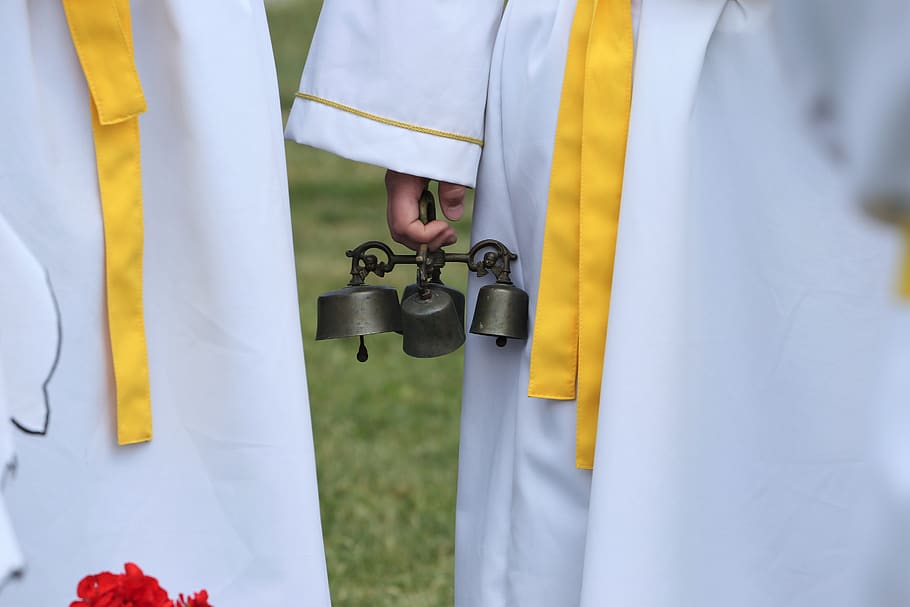Must a bell always be rung during the consecration at Mass?

By Father Kenneth Doyle –
Question: Why do some parishes not ring a bell at the consecration?
Answer: The use of altar bells during Mass is neither mandated by the church nor forbidden; it is an option but not an obligation, left to the discretion of the priest.
Here’s what the General Instruction of the Roman Missal says: “A little before the consecration, if appropriate, a minister rings a small bell as a signal to the faithful. The minister also rings the small bell at each elevation by the priest, according to local custom” (No. 150).
The ringing of bells during the consecration has a long history in the church, beginning about the 13th century. In those days, churches were large, the priest faced the altar and Mass was offered in Latin; churches often had raised platforms in front of the altar for the choir, the result being that some worshippers could not see the altar. The ringing of bells served to draw the attention of the congregation to the fact that the sacred act of transubstantiation was taking place.
After the liturgical reforms of Vatican II — with the priest now facing the people and the language in the vernacular — many parishes decided to discontinue the use of altar bells. Bells do, though, add reverence and solemnity to a celebration. (Note that bells are rung at the Gloria during the Easter Vigil Mass to express the joy of the Resurrection.)
Altar bells are commonly used in the basilicas of Rome and, interestingly, in 1972 when asked the question “Is a bell to be rung at Mass?” the Vatican’s Congregation for Divine Worship and the Sacraments gave this reply:
“From a long and attentive catechesis and education in liturgy, a particular liturgical assembly may be able to take part in the Mass with such attention and awareness that it has no need of this signal at the central part of the Mass. This may easily be the case, for example, with religious communities or with particular or small groups. The opposite may be presumed in a parish or a public church, where there is a different level of liturgical and religious education and where people who are visitors or are not regular churchgoers take part.”
Asked and answered in the September 2022 issue of The Southern Cross magazine
- Pope asks Catholics to support missions with prayer and donations - October 15, 2025
- Pope to hermits: Your isolation is a connection with God, others and creation - October 14, 2025
- Pope: No Idea, Faith or Policy Justifies Killing - October 13, 2025





